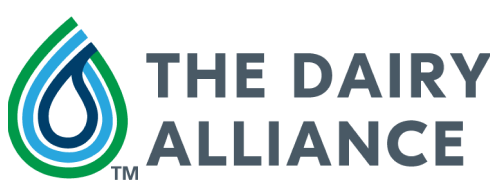All Dairy Foods Fit
As Americans, we like to simplify our life as much as possible. Many of us search for that one nutrient or food to help us lose weight or prevent disease. This singular approach to diet and food has led us astray. Several years ago, health experts recommended reducing our fat intake to lower our risk for diseases such as heart disease and diabetes. Unfortunately, many people began consuming foods low in nutrients, yet high in sugar and calories, in place of higher-fat foods.
As a dietitian who has worked on cardiac rehab and diabetes education teams, I’ve cautioned patients not to fall into that trap. Just because a cookie or cracker on the shelf is low in fat does not mean it’s a healthy choice. I have been a long-time advocate of eating wholesome foods. Therefore, I feel it’s necessary to be a critical consumer of published health research. We don’t want to fall into that single-nutrient-approach-fits-all mentality again.
Case in point: Findings from a recent study published in the journal, Circulation, indicate full-fat dairy products may help lower the risk of diabetes when part of a healthy diet. Another study published in the American Journal of Nutrition found that participants who consumed high-fat dairy products as part of a healthy diet lowered their risk for being overweight or obese by 8 percent. In light of these recent findings, does it mean we should all switch to full-fat dairy products and eliminate low-fat yogurt or skim milk?
Though these findings are very interesting, our eating habits shouldn’t be determined by results from one or two studies. As recommended by the researchers, additional studies need to be conducted
To avoid that ‘one-food’ or ‘singular-nutrient’ approach to healthy eating, it’s wise to eat a well-rounded diet, including dairy products. All varieties provide the body with many essential nutrients for good health. Whether you drink skim or whole milk, you will obtain calcium, vitamin D, phosphorus, protein and potassium to build and maintain bones. Whole milk may help keep you full, but lower-fat milks are a good option for people who need to or are trying to reduce their daily caloric intake.
The bottom line: Wholesome dairy does a body good! Get more information on the health benefits of dairy today.
Lisa Sheehan-Smith, EdD, RD, LDN
Lisa is a registered dietitian and currently serves as a member of the Health and Wellness Advisory Council for SUDIA. She is a professor of Nutrition and Food Science and director of the Didactic program in Dietetics at Middle Tennessee State University. Lisa is also a recipient of the Outstanding Dietetics Educator Award from both the Nashville and Tennessee Academies of Nutrition and Dietetics.





